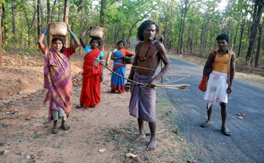State of the worlds indigenous peoples 2010
State of the worlds indigenous peoples 2010

This latest UN report reveals alarming statistics on how indigenous peoples are faring in areas like health, education, poverty, environment and human rights. Shows that they suffer disproportionately compared to non-indigenous and face systematic discrimination and exclusion.
This report on the state of the world's indigenous peoples reveals alarming statistics on poverty, health, education, employment, human rights, the environment and more. Indigenous peoples contribute extensively to humanity's cultural diversity, enriching it with more than two thirds of its languages and an extraordinary amount of its traditional knowledge. There are over 370 million indigenous people in some 90 countries, living in all regions of the world. The situation of indigenous peoples in many parts of the world is critical today. Poverty rates are significantly higher among indigenous peoples compared to other groups. While they constitute 5 per cent of the world's population, they are 15 per cent of the world's poor. Most indicators of well-being show that indigenous peoples suffer disproportinately compared to non-indigenous peoples. Indigenous peoples face systemic discrimination and exclusion from political and economic power; they continue to be over-represented among the poorest, the illiterate, the destitute; they are displaced by wars and environmental disasters; indigenous peoples are dispossessed of their ancestral lands and deprived of their resources for survival, both physical and cultural; they are even robbed of their very right to life.







